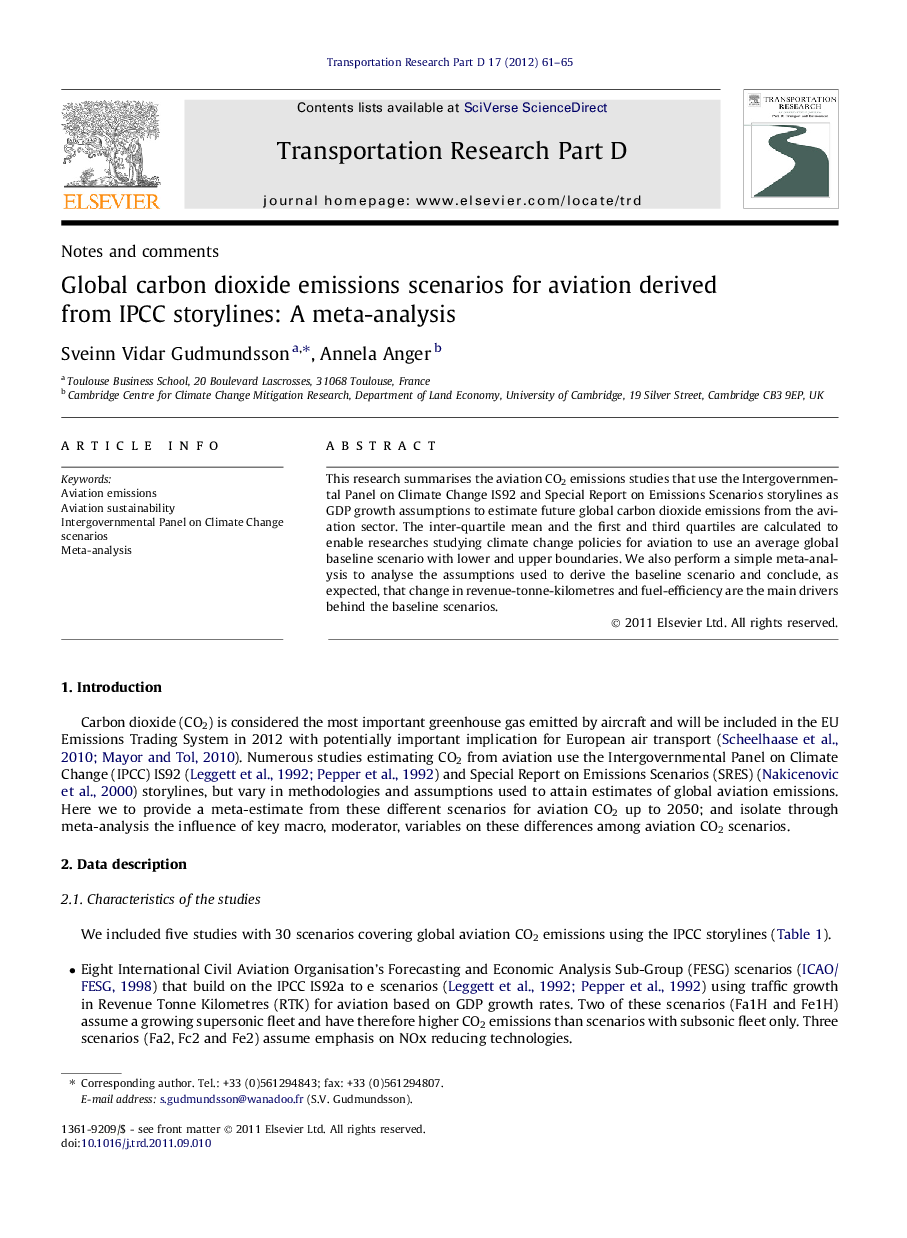| Article ID | Journal | Published Year | Pages | File Type |
|---|---|---|---|---|
| 1065983 | Transportation Research Part D: Transport and Environment | 2012 | 5 Pages |
This research summarises the aviation CO2 emissions studies that use the Intergovernmental Panel on Climate Change IS92 and Special Report on Emissions Scenarios storylines as GDP growth assumptions to estimate future global carbon dioxide emissions from the aviation sector. The inter-quartile mean and the first and third quartiles are calculated to enable researches studying climate change policies for aviation to use an average global baseline scenario with lower and upper boundaries. We also perform a simple meta-analysis to analyse the assumptions used to derive the baseline scenario and conclude, as expected, that change in revenue-tonne-kilometres and fuel-efficiency are the main drivers behind the baseline scenarios.
► A meta-analysis of IPCC studies estimating carbon dioxide emissions from the aviation sector. ► Meta-estimate for year 2050 was 2332 MtCO2 with a lower estimate of 1444 MtCO2 and higher estimate of 3122 MtCO2. ► Technological development plays a key role in estimated future in long-term aviation CO2 scenarios, followed by RTK growth. ► Aviation CO2 emissions are generally expected to grow faster than the global economy.
